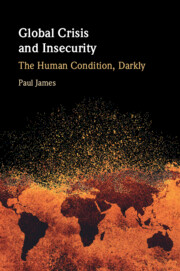Book contents
- Frontmatter
- Dedication
- Contents
- Figures
- Tables
- Preface
- Part I The Dark Energy of Our Time
- Part II Confronting Global Contradictions
- 3 The Existential Unsettling of Security
- 4 Descending into Postcolonial Violence
- 5 Disrupting the Hopes of Reconciliation
- 6 Dehumanising Refugees
- 7 Abstracting Embodiment
- Part III Struggling for Positive Human Development
- Appendix A: A Note on Method
- Appendix B: A Glossary for Engaged Practice
- Bibliography
- Index
7 - Abstracting Embodiment
from Part II - Confronting Global Contradictions
Published online by Cambridge University Press: 01 June 2025
- Frontmatter
- Dedication
- Contents
- Figures
- Tables
- Preface
- Part I The Dark Energy of Our Time
- Part II Confronting Global Contradictions
- 3 The Existential Unsettling of Security
- 4 Descending into Postcolonial Violence
- 5 Disrupting the Hopes of Reconciliation
- 6 Dehumanising Refugees
- 7 Abstracting Embodiment
- Part III Struggling for Positive Human Development
- Appendix A: A Note on Method
- Appendix B: A Glossary for Engaged Practice
- Bibliography
- Index
Summary
Human-embodied relations are being fundamentally transformed by increasingly globalised abstracting processes. Developments including the planetary reach of technoscience, cybercapitalism, and communications technologies. They are increasingly framing how we live our bodies. They enable phenomena as diverse as the global trade in body parts and the distribution of pharmaceuticals. However, there is also a less obvious reframing of our bodies going on. Biotechnologies have been steadily remaking the foundations of human procreation, gestation, and identity formation, albeit unevenly in different parts of the world. This enquiry weaves together related themes: modifying genetic organisms, reproducing human life, gestating a fetus, presenting sexual identity, and being vaccinated. In the case of COVID, a technoscientific fix is presented as necessary to mitigate the effects of a world turned upside down by the technologisation and exploitation of planetary ecology. Technoscience is displacing modern science. The chapter seeks to show how technoscientific intervention associated with ideologies of overcoming bodily constraint is remaking what it means to be human.
Information
- Type
- Chapter
- Information
- Global Crisis and InsecurityThe Human Condition, Darkly, pp. 154 - 180Publisher: Cambridge University PressPrint publication year: 2025
